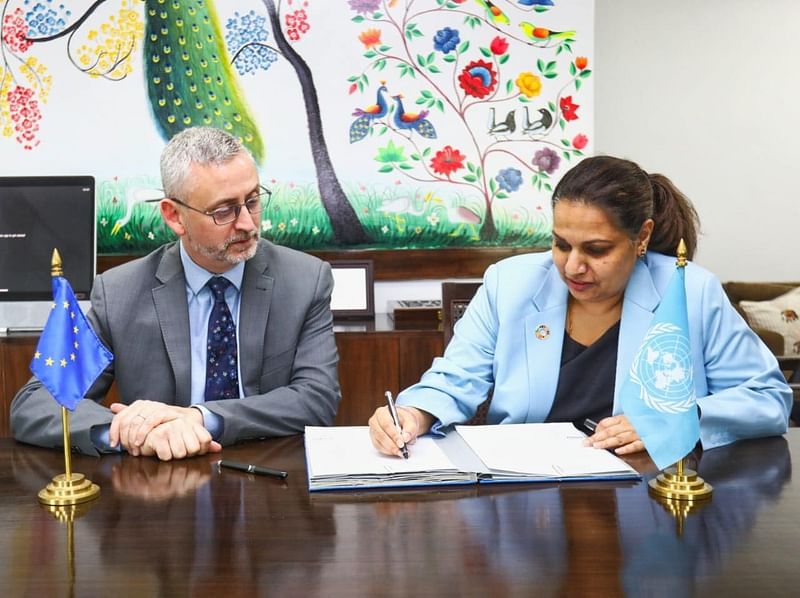- Trump considering military options on Greenland; Europe rejects |
- Fertiliser crunch threatens Kushtia’s onion boom despite high prices |
- Security Council Divided on United States' Venezuela Action |
- Over 1.53m voters register for postal balloting: Shafiqul Alam |
EU, UN Women Sign €4.8M to Promote Gender Equality in BD

The European Union (EU) and UN Women have signed a €4.8 million partnership agreement in Dhaka to combat sexual and gender-based violence (SGBV) in public spaces, workplaces, and educational institutions across Bangladesh.
Aligned with Bangladesh’s National Action Plan to Prevent Violence Against Women and Children (NAPVAWC) 2018-2030, the project supports the government's goal of eliminating violence against women and children by 2025. It aims to prevent and respond to gender-based violence (GBV) through strategies targeting key areas of daily life, including public spaces, workplaces, and schools.
The partnership also underscores UN Women’s efforts to encourage Bangladesh to fulfill its international commitments on gender equality, including those set out in the Universal Periodic Review, the Convention on the Elimination of All Forms of Discrimination Against Women (CEDAW), and NAPVAWC.
The project will help achieve Sustainable Development Goal (SDG) 5.1.1, which aims to eliminate all forms of discrimination against women and girls.
Building on the EU’s previous support, the new grant will focus on three key areas: i) strengthening policies and systems to prevent SGBV, ii) challenging harmful social and gender norms, and iii) empowering civil society and women’s rights organizations for long-term impact.
At the signing ceremony on January 21, EU Ambassador to Bangladesh Michael Miller emphasized the EU’s commitment to advancing gender equality and eliminating violence. “This project will create safe environments where women and girls can live free from fear and discrimination,” he said.
UN Women Representative Gitanjali Singh highlighted the importance of this partnership as the world marks the 30th anniversary of the Beijing Declaration and Platform for Action. She thanked the EU for its support and said the collaboration would help make gender equality a reality in Bangladesh by tackling violence and discriminatory norms.
Together, the EU and UN Women reaffirm their shared commitment to a future free from violence and discrimination for women and girls in Bangladesh.

